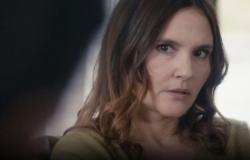“Everybody loves Touda”, the latest film directed by Nabil Ayouch, will be released in theaters in Morocco in December 2024. In the meantime, the promotional tour has started with its world premiere screening at Cannes Première, at the last Cannes Festival. Faithful to his trademark, with the same recurring themes, Nabil Ayouch still wants to prove that his cinema has evolved.
Le360: Your latest film, “Everybody loves Touda”, was screened at Cannes Première. How did you receive the reception from the public compared to your other appearances on the Croisette?
Nabil Ayouch: This was our fourth time in Cannes. But we never tire of it and each time it’s different. The first time it was with “Les Chevaux de Dieu”, in the Un certain regard section, the second time it was with “Much Loved”, in the parallel section of the Directors’ Fortnight, and the last time it was with “Loud and clear”, in the official selection.
Each time it is a renewed, strong, powerful experience, because presenting your film as a world premiere in front of the Cannes public, in the largest room of the Palais des Congrès, is always a unique moment for a filmmaker.
Also, the presentation made by Thierry Frémaux, general delegate of the Cannes Festival, touched me a lot, the way in which he spoke about me, about the film, about Moroccan cinema‚ innovative, rebellious and talented, put me balm to the heart.
To honor the chikhates, to honor the aïta, is to honor Morocco. It was a beautiful moment, with a standing ovation which lasted around fifteen minutes, Nisrin Erradi sang an extract from a song taken from the heritage of the aïta. It was a unique moment.
“Everybody loves Touda” is a film about Shikhates, who are both adored and stigmatized. This is not the first time that you are interested in the paradoxes of society in your films…
“Everybody loves Touda” tells the story of a woman who has dreams, who has an ambition and who seeks to rise through her art, the aïta. She believes in it, she wants to move forward in life and give herself and her deaf-mute son a chance by being appreciated as an artist.
She starts in her small village, she sings in a cabaret where she is not necessarily happy. She is in fact stigmatized and, above all, something other than what she would like to be expected of her. One day, she decides to abandon everything and leave for Casablanca, the city of lights, with the dream of success. But things are not simple.
It’s true that strong female characters have haunted my films for a long time. Likewise, the characters of chikhates, we had them in secondary roles in “Razzia” and “Les Chevaux de Dieu”. I had always told myself that one day, I was going to dedicate a film to them, because I find that there is an injustice between the role they played in the history of the country, what they embody , the art they carry and the image that the public has started to have of them in recent years.
You have had your trademark since your first feature film “Mektoub”. Do you think that your way of making your cinema has evolved?
You know, my cinema is only the reflection of my wounds, of what haunts me, of what has built me over time. It was born from my personal story which is particular, which is unlike any other: that of my double culture, my double belonging.
When I was just a child and living in France, I never learned this Moroccan identity that was in my DNA. And it is thanks to cinema, to my first films, that I was able to know Morocco from the inside, and that I was able to detect the Moroccan soul in all its diversity.
“With “Everybody loves Touda”, I follow the steps of a single character, whereas I was more used to making ensemble cinema, with several characters.”
— Nabil Ayouch, director.
My first films were linked to the quest for identity through characters who were looking for an identity, who wanted to be understood, accepted. And little by little, my cinema evolved into a cinema around the characters. This is what makes me want to write through them.
And with “Everybody loves Touda”, there is a real evolution, because I follow the steps of a single character: “Touda”, interpreted by Nisrin Erradi, while I was used to making an choral cinema with several characters who are at the center of the story and the narrative.
You sported a new look during the Cannes Film Festival. What explains this sudden change in your physical appearance and clothing?
The change in haircut came from a bet with my son. I wanted my hair to grow and I told him we’ll see who gets it longer until the day I went to a hairdresser friend who offered me this cut, and I liked it.
For clothes, it’s the same. I wanted to pay tribute to a Moroccan stylist, Ali Drissi, a very talented man who has been with me for years. He suggested very contemporary outfits for the whole team. For the climb, Nisrin Erradi had a very beautiful leather caftan, Mariam, with very beautiful embroidery, and he made me an embroidered tie and a selham, which I wore for the screening of “Everybody loves Touda” .
By Quds Chabaa And Khalil Essalak
06/10/2024 at 8:30 a.m.






